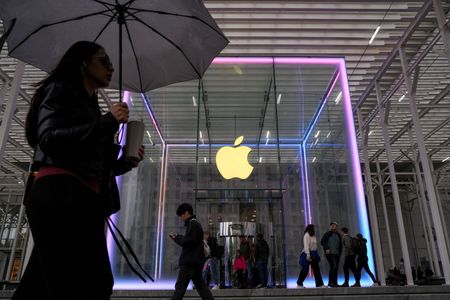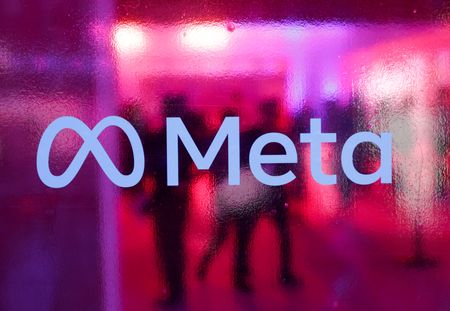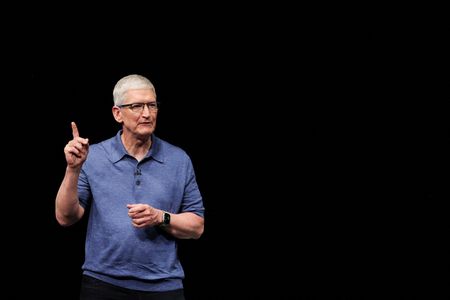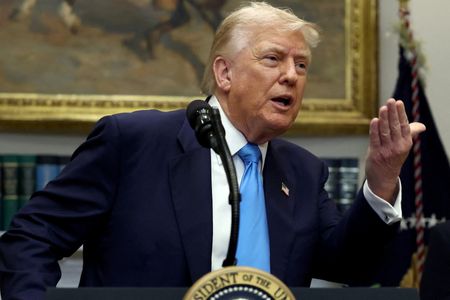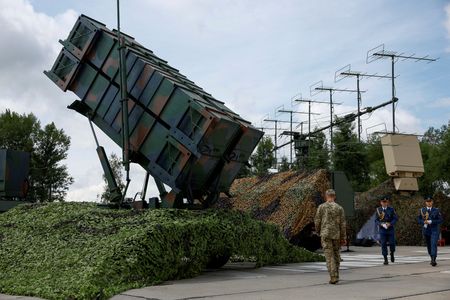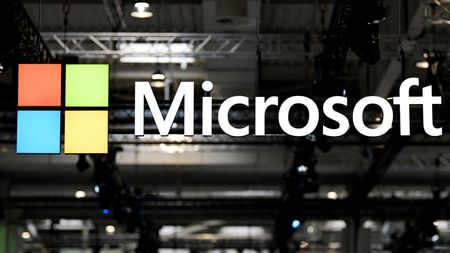By Harshita Mary Varghese and Joel Jose
(Reuters) -Apple’s best revenue growth in three years failed to impress, with shares down about 1% in volatile trading on Friday, as investors questioned whether a tariff-driven surge in iPhone sales would last.
A rush to buy iPhones ahead of potential U.S. tariff-driven price increases, along with China subsidies and upbeat demand for the budget 16e model launched in February, fueled a 13.5% jump in the quarterly sales of the device, crushing expectations.
That pushed up total revenue by a better-than-expected 10% in the April-June period, and Apple issued an above-estimate sales forecast for the current quarter ending in September.
The results came at a precarious time for the company long seen as Big Tech’s safest bet. Beyond the tariff threats facing its manufacturing hubs China and India, Apple has been slow to move on artificial intelligence technology that its software and devices rivals have embraced as their next big growth driver.
Analysts said the sales rebound in China, where local rivals have moved faster than Apple on AI features, was a positive. The company benefited in the world’s largest smartphone market from a state subsidy program meant to prop up device sales.
But they also warned the “pull-in” boost was expected to be temporary, raising doubts about demand for the rest of the year.
“Pull-forward, remember, is not a U.S. issue. It’s also a China issue. There, Apple’s Pro model iPhones were too expensive to qualify for Chinese government subsidies that were being offered … so they cut prices to qualify, leaning into the volume opportunity. It worked,” MoffettNathanson analysts said.
“But as with the U.S., what does that mean for the rest of the year?”
So far this year, Apple stock has underperformed all its “Magnificent Seven” peers barring Tesla, with a decline of more than 17%. The S&P has risen 7.8% in the period.
Many of Apple’s products are currently exempt from tariffs, and the company has also been rebalancing its supply chain to shield itself from the duties, sourcing iPhones from India and other products such as Macs and Apple Watches from Vietnam.
The U.S. is currently negotiating trade deals with both China and India, with U.S. President Donald Trump saying India could face 25% tariffs as early as Friday.
Apple said tariffs would raise costs by $1.1 billion in the current quarter after the company said it took an $800 million hit from tariffs in the third quarter.
Its AI strategy also remains a concern after Apple delayed the release of an AI-enhanced version of Siri virtual assistant and was slow to launch Apple Intelligence.
CEO Tim Cook said on Thursday the company was making good progress on Siri and that Apple is “significantly growing” its investments in AI.
“Brand loyalty gives Apple time to get the AI transition right, but it needs to start delivering,” said Matt Britzman, senior equity analyst, Hargreaves Lansdown.
(Reporting by Joel Jose and Harshita Mary Varghese in Bengaluru and Alun John in London; Editing by Amanda Cooper and Shinjini Ganguli)

